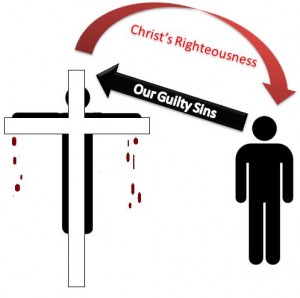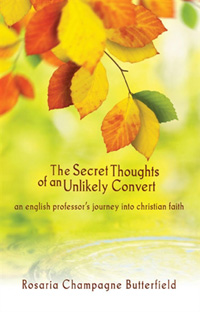 In an article entitled Dr. R. C. Sproul writes:
In an article entitled Dr. R. C. Sproul writes:
Has anyone ever said something unkind to you or about you? I think we all have had that experience. Becoming victims of slander or malicious gossip can be difficult to bear. However, God calls us to exhibit a very specific kind of response in such circumstances.
Years ago, I received a letter from a friend who is a pastor at a church in California. In it, the pastor included a copy of an article that had appeared in the Los Angeles Times. Although the article included a photo of him standing in his church and holding his Bible, it was basically a vicious personal attack against him.
When I saw that picture and read that article, I felt a great deal of empathy for my friend because I had recently had a similar experience. A person I believed was my friend made some very unkind statements about me publicly, and word had gotten back to me. My feelings basically vacillated between despondency and anger, even though I knew I needed to respond with joy (Matt. 5:11–12).
I believe the greatest book ever written about the virtue of love in the Christian life is Jonathan Edwards’ classic Charity and Its Fruits. In this book, Edwards included a chapter on how we are to respond to false charges. There, he makes the biblical point that such attacks should not surprise us; rather, we should expect them:
Men that have their spirits heated and enraged and rising in bitter resentment when they are injured act as if they thought some strange thing had happened to them. Whereas they are very foolish in so thinking for it is no strange thing at all but only what was to be expected in a world like this. They therefore do not act wisely that allow their spirits to be ruffled by the injuries they suffer.
Edwards’ point is that if the Christian expects to be slandered and keeps his eyes focused on God when it happens, he will not be depressed over it.
Edwards reinforces the concept that other human beings can harm only my worldly pleasure. A person can injure my body, steal my money, or even destroy my reputation. However, all of these things have to do only with the cares and pleasures of this world. But we have an inheritance that is laid up in heaven, a treasure no one can steal or defile (1 Peter 1:4). It is protected by the Lord Himself.
We might be tempted to think that Edwards was a spiritual giant who could handle personal attacks with ease, while we are “ordinary” believers. How, then, can we not be distressed when we are hurt by people we thought were our friends? Yet while it is true that it is part of our human nature to respond to personal attacks with sadness, anger, or bitterness, these feelings are part of our fallen humanity. They are not fruits of the Holy Spirit. This means that Edwards, as great a saint as he was, was not calling “ordinary” Christians to do anything extraordinary. We are all called to bear our injuries with joy, patience, love, and gentleness.
This kind of response is required of all of us because the Christian life is about the imitation of Christ (1 Cor. 11:1). We are being molded into His image, so we are to strive to live as He lived. Our Lord was slandered and falsely accused of all kinds of offenses, but He opened not His mouth in protest (Isa. 53:7). Like a lamb, He accepted these vitriolic attacks, and, in the very moment of His passion, He prayed for the forgiveness of those who were attacking Him (Luke 23:34). This is how we are called to react to our enemies (1 Peter 4:13). Therefore, every false accusation, every slander, every ill word spoken about me is an opportunity for me to grow in my sanctification.
Edwards helped me see that I had allowed my soul to become distressed, and that was sin. Instead of seeing the attack on me as an occasion to imitate Christ and to grow in my sanctification, I had resisted God’s Spirit, who had brought this painful event into my life for my edification, that I might remember where my treasure is.
The key to responding to attacks and insults as Christ would is to nurture love for God. Edwards writes:
As love to God prevails, it tends to set persons above human injuries, in this sense, that the more they love God the more they will place all their happiness in him. They will look to God as their all and seek their happiness in portion in his favor, and thus not in the allotments of his providence alone. The more they love God, the less they set their hearts on their worldly interests, which are all that their enemies can touch.
We need to keep Edwards’ insight in mind as we deal with the inevitable attacks and insults that come our way in this life.

 In an article entitled Dr. R. C. Sproul writes:
In an article entitled Dr. R. C. Sproul writes: In an article entitled “The Value of Confessions” in Douglas F. Kelly writes:
In an article entitled “The Value of Confessions” in Douglas F. Kelly writes: “Peace if possible. Truth at all costs.” – Martin Luther
“Peace if possible. Truth at all costs.” – Martin Luther In the 9th sermon of John Piper’s epic series on the book of Romans he comes to Romans 1:16 (9 sermons and he’s only 16 verses in!), “What is salvation?” The text is one you know well, I’m sure: “For I am not ashamed of the gospel, for it is the power of God for salvation to everyone who believes, to the Jew first and also to the Greek.”
In the 9th sermon of John Piper’s epic series on the book of Romans he comes to Romans 1:16 (9 sermons and he’s only 16 verses in!), “What is salvation?” The text is one you know well, I’m sure: “For I am not ashamed of the gospel, for it is the power of God for salvation to everyone who believes, to the Jew first and also to the Greek.” (1) “For He (God) made Him (Jesus) who knew no sin to become sin for us, that we might be made the righteousness of God in Him.” – 2 Cor. 5:21
(1) “For He (God) made Him (Jesus) who knew no sin to become sin for us, that we might be made the righteousness of God in Him.” – 2 Cor. 5:21 What a word is ‘imputation’ – that all of my sins, past, present and future, were imputed (transferred, credited) to my Savior on the cross who bore the wrath of God for them exhaustively as my Substitute; and that His righteous life that fully pleased His Father and every demand of His law, was imputed to my account by grace alone, through faith alone in Christ alone. This is my only hope and anchor and solid ground beneath my feet.
What a word is ‘imputation’ – that all of my sins, past, present and future, were imputed (transferred, credited) to my Savior on the cross who bore the wrath of God for them exhaustively as my Substitute; and that His righteous life that fully pleased His Father and every demand of His law, was imputed to my account by grace alone, through faith alone in Christ alone. This is my only hope and anchor and solid ground beneath my feet. Dr. Carl Trueman writes this concerning her book The Secret Thoughts of an Unlikely Convert – An English Professor’s Journey into Christian Faith, “This autobiography is the launchpad for numerous sophisticated reflections on the nature of life, faith, sexuality, worship, education and other matters. As one would expect from a lover of nineteenth century literature, the book is also beautifully written with many a well-turned sentence; and as one would expect from someone schooled at the highest levels in critical theory, it eschews simplistic pieties for stimulating analyses of both Christian and non-Christian culture. I cannot recommend this book highly enough. I do not agree with everything she says; but I did learn from everything she wrote. It deserves the widest possible readership.” It is available
Dr. Carl Trueman writes this concerning her book The Secret Thoughts of an Unlikely Convert – An English Professor’s Journey into Christian Faith, “This autobiography is the launchpad for numerous sophisticated reflections on the nature of life, faith, sexuality, worship, education and other matters. As one would expect from a lover of nineteenth century literature, the book is also beautifully written with many a well-turned sentence; and as one would expect from someone schooled at the highest levels in critical theory, it eschews simplistic pieties for stimulating analyses of both Christian and non-Christian culture. I cannot recommend this book highly enough. I do not agree with everything she says; but I did learn from everything she wrote. It deserves the widest possible readership.” It is available